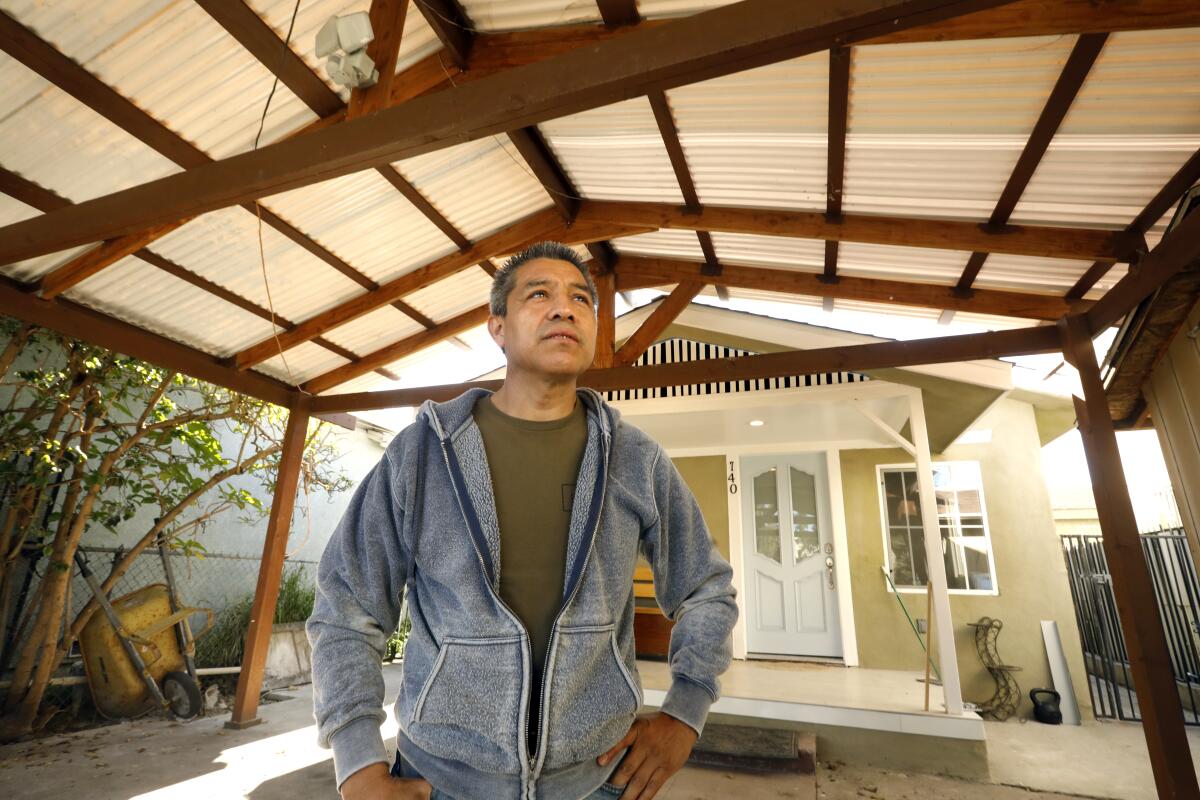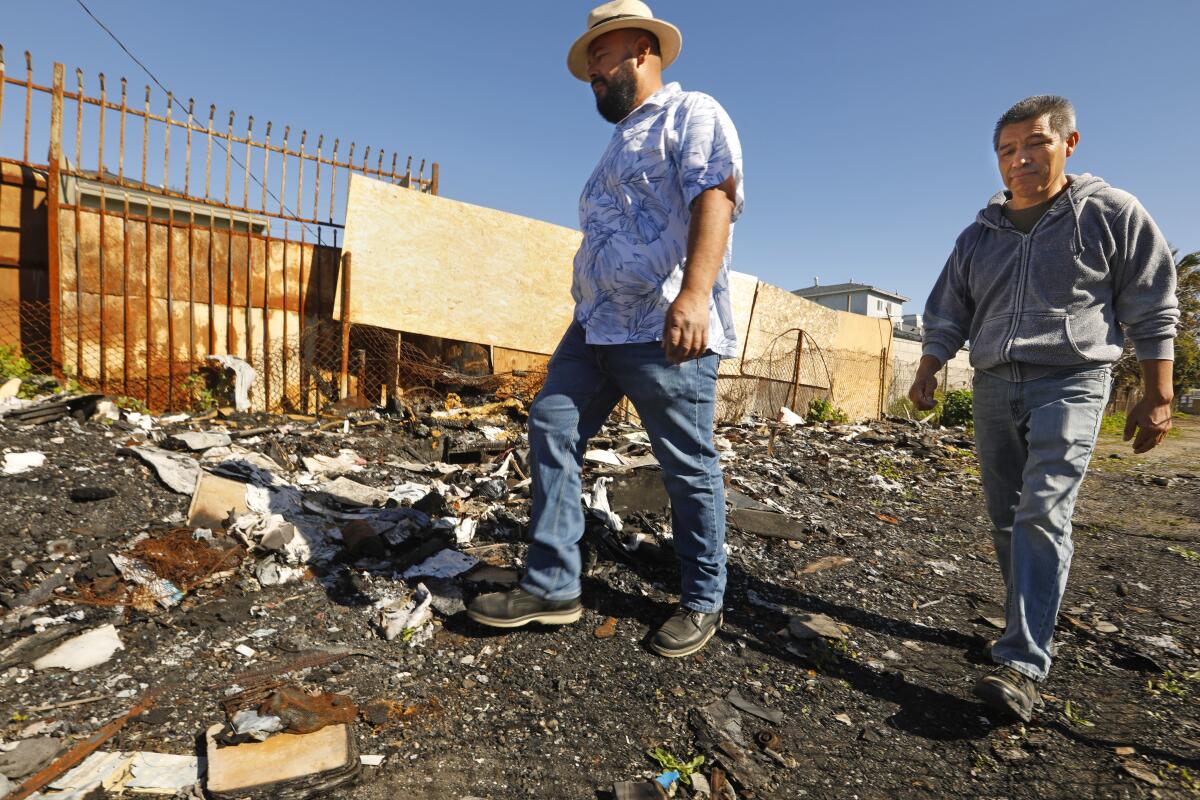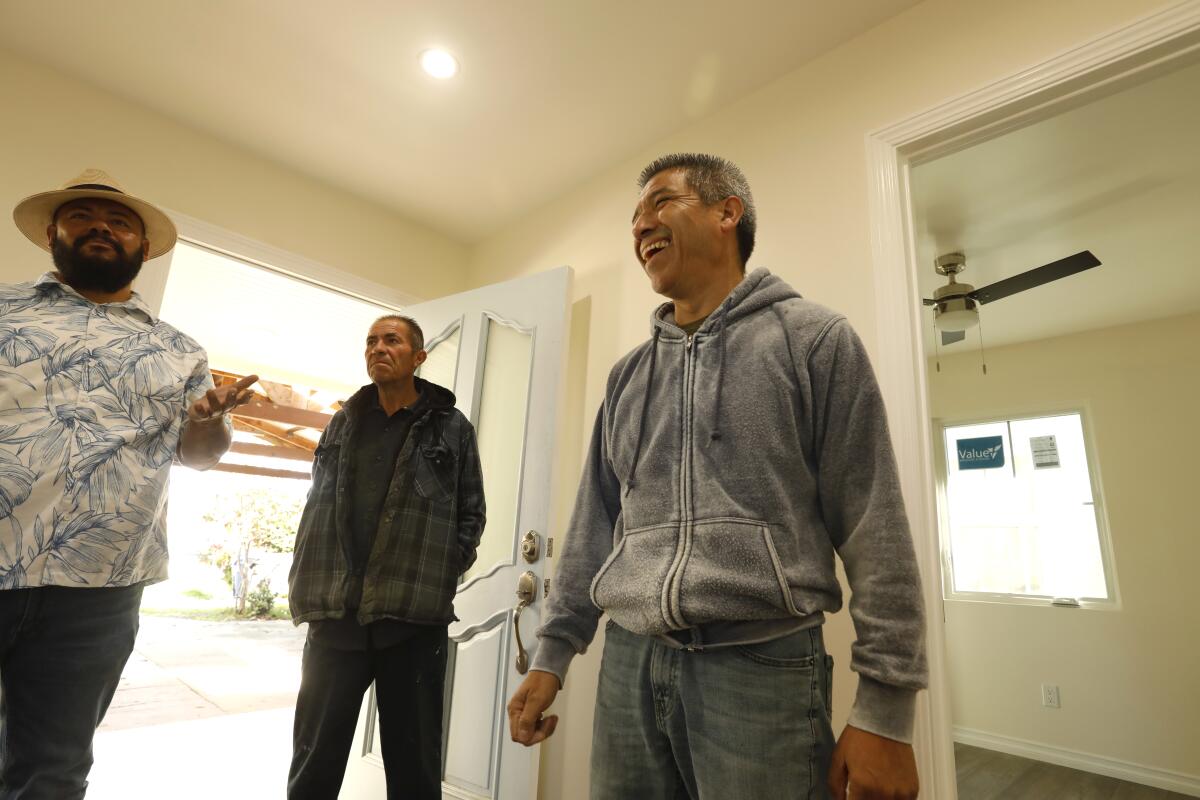A Watts family gets a helping hand after a house fire pushed them toward homelessness

- Share via
For nine months, the Álvarez family’s home in Watts lay vacant after a fire that started in a homeless camp behind it reduced the back rooms to rubble and scarred what was left with soot.
Insurance payments allowed Gustavo Flores Álvarez to move his family back into the apartment where they had lived more than 25 years earlier before he bought the modest house a few doors down on East 108th Street, walking distance from his cabinet-making shop.

But the temporary housing benefit ran out after six months, and Álvarez didn’t have the savings or the cash flow from his cabinet-making business to fill the gap in his insurance coverage.
“We are saving up to fix the house,” he told The Times last July. “But the $1,400 of rent for our temporary home has been an added expense. My wife is working at a clothing store to make up for some of it.”
Álvarez said he expected to live with insecurity the rest of his life.
“You work day and night for years to build something and it is gone in a matter of hours,” he said.
Then, just as unexpectedly, his fortune turned.
Seeing the story in The Times, Jessica Lawson, disaster recovery program manager for Habitat for Humanity Greater Los Angeles, reached out.
“I knew we had the power to help,” Lawson said. “I made sure my colleagues saw it right away. Wouldn’t it be cool if we could actually help the family?”

Habitat does not give money away for repairs. But, as a contractor with the state CalHome program, it makes about 100 loans a year to homeowners for renovations.
“We’re known for new homes,” said Erin Rank, president and chief executive of Habitat’s Los Angeles affiliate. “We also help families who don’t have the physical or financial ability to do renovations.”
The terms are highly favorable to the borrower: no interest and no monthly payments with the balance due after 30 years or when the house sells.
Most often the money is for safety or accessibility improvements, Rank said. There’s also a separate fund for wildfire repairs.
The program is not typically used for homes that were destroyed, Rank said, but there was no reason it couldn’t be.
After conducting a damage assessment and reviewing the contractor’s cost estimates, Habitat committed to making up the shortfall in Álvarez’s insurance.
This week, Álvarez met with Habitat program manager Kathia Rodriguez to sign documents on a $90,000 loan to make the final payment on the $220,000 project. With the loan commitment, the contractor had already completed most of the work.
A beaming Álvarez walked through the nearly completed house this week. He said he expects to move back in two months.
“You help me too much,” he said. “If you no — como se dice?” he asked Germán Magaña, a neighborhood booster who came to translate for him.
“Had not come,” Magaña said, completing the thought. “Had there not been a Los Angeles Times story, I think this would still remain the same. For us as private citizens, it’s really hard to get any traction whatsoever, to more forward with anything.”
It was ironic, Magaña said. “You have a guy whose house was destroyed by what we currently call the homeless crisis and now he’s homeless himself waiting to return to his home and going through all this struggle.”
More to Read
Sign up for Essential California
The most important California stories and recommendations in your inbox every morning.
You may occasionally receive promotional content from the Los Angeles Times.











